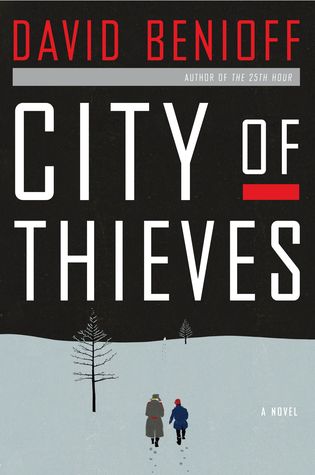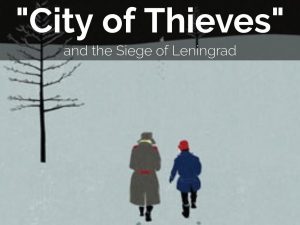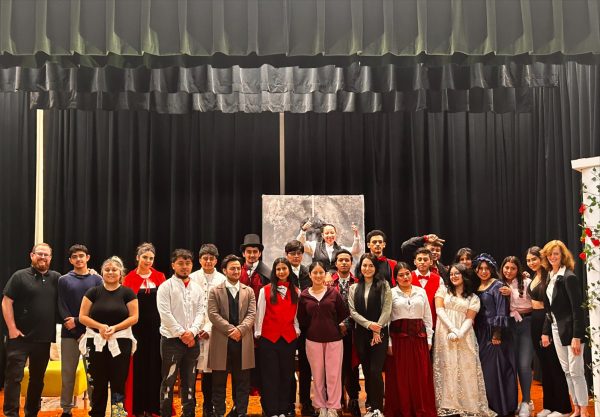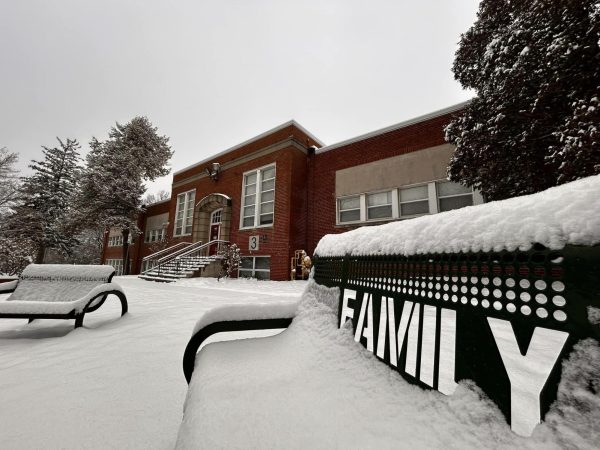The Dogs of War in Leningrad

City of Thieves is a novel written by David Benioff. It recounts the story of the narrator’s grandparents during the siege of Leningrad during World War II by the Germans. The novel begins with a brief prologue, during which the narrator describes his motivation for writing his grandfather’s story. He knows that grandfather had killed two Germans in the war before he was eighteen and that he had missing fingers in one hand and his grandmother is a mystery in the family for never cooking, but never knew the details of their story. The narrator’s grandfather, Lev Beniov, shares his story of the siege of Leningrad which the narrator turns into this novel. Lev mentions that all this happened many years ago, so his memory is not the most accurate. When the narrator asks him for accurate details, he tells him to make up his own- he is a writer after all. Although the story is told from the perspective of Lev Beniov, it is unclear how much of it is fiction and how much of it is fact. The author presents this novel as inspired by real events, although we know that it is a work of fiction. In doing so, he blurs the gap between fact and fiction.
The book is set in Leningrad in Soviet Russia in 1942. German soldiers surround the Russian city, food is hard to come by, and hope is deteriorating rapidly. Lev Beniov, who is seventeen years old half-Jew, is alone in the city with a few of his friends, working as a volunteer firefighter. His mother and his sister has fled from the city before the siege to live with their relatives out east. In a surge of patriotism, Lev had refused to accompany his mother even though he was too young to fight on the front lines. He wanted to stay and defend Piter, his beloved city from the German invaders.
One night, as Lev and his friends are waiting on the roof of their apartment building the Kirov, a dead German pilot falls from the sky in a parachute. In spite of the curfew, the children quickly run down and figure out that the pilot had died in the cold. They quickly loot the body and Lev finds a knife on the corpse, which he hold onto for the rest of the story. As they are looting, a military car stops in front of them and the children try to flee. Lev gets caught while trying to save his crush, Vera. He is then thrown into the Crosses, an infamous prison.
Lev finds himself in a cold, dark prison cell. All by himself, he is very scared and lonely. After a few hours alone in the dark, another prisoner named Kolya is also thrown in the cell with him. Kolya has apparently been found guilty of deserting the army, the punishment for which is death. The two begin to strike up conversation to pass the time, wondering why they have not been executed. Lev is certain that they will be executed the next morning. In the morning, they are taken from the prison to an influential Colonel in the Soviet Secret Police. The Colonel takes away their ration cards, without which they will probably starve, and tasks them with finding 12 eggs for a cake for his daughter’s wedding in the next six days.
Kolya and Lev decide that the first place to look for eggs would be the Haymarket, a black market where farmers smuggle in food in exchange for money and valuables. They search the entire Haymarket, but find only a rumor of a man who keeps of coop of chickens on the roof of his apartment. Kolya and Lev are lured into an apartment building by a giant man who claims to have eggs. Upon entering, they find human flesh hanging from the ceiling and realize that they have been ambushed by two cannibals. Lev flees, but Kolya stays and fights, before escaping as well. Having escaped the cannibals, Lev brings Kolya to the Kirov, only to find that it was leveled by a bomb the previous night, while he was imprisoned. Lev is sad because he thinks that his friends were dead. They manage to find shelter for the night at the home of one of Kolya’s former relationships, Sonya. She invites them in for some food. After some discussion with the friends who live with her, Lev beds down for the night, as Kolya and Sonya make love in an adjacent room.
The next morning, Kolya and Lev are walking to the apartment where a man is rumored to be keeping chickens. They go to the roof, and discover several empty nesting boxes. However, they also find the corpse of the man, and his still-living grandson. Kolya and Lev attempt to convince the boy to go get help and eat, but he has lost all will to live. He gives them the last chicken, before dismissing them. Kolya gives him the last of his food and money before leaving. However, it seems unlikely that the boy would actually use the food or the money. Kolya probably left it with the grandson anyway because it either felt unfair to rob a starving and freezing child, or at least as a means to deal with his guilt.
The two return to Sonya’s apartment, where they wonder how long it will take the chicken to lay 12 eggs. They find out that the chicken is actually a rooster and end up turning it into soup. They find out that Sonya’s uncle used to own a poultry farm not far from the city. Well-fed, they now set out to find the farm. Outside the city, they discover a field filled with the dead bodies of dogs, used as anti-tank explosives by the Soviets. One dog is still alive, and suffering greatly. Kolya asks for Lev’s knife, and slits the dog’s throat in an act of mercy.
The two of them find out that they are lost and find a house full of Russian girls who had been forced to sell themselves to the Germans in exchange for food and survival. They learn of the story of Zoya, one of the girls, who had been brutally mutilated by the German commander. Lev and Kolya decide to lie in ambush and kill the Germans when they visited that night. However, the Germans are sniped down by some Russian partisans as they arrive. Kolya shows the letter from the Corporal to the partisan leader while Lev finds himself strongly attracted to a female sniper in the group, Vika. However, Vika is cold and pays very little attention to Lev.
Kolya and Lev decide to join in with the partisans for now, and march with them. The following morning, the partisans are found by a German patrol and are attacked. All of them but Vika, Kolya and Lev are killed and they join slip into a group of Soviet prisoners being transported by the Germans. The Germans march the Soviet prisoners into a schoolhouse, and begin to administer a test to determine whether their prisoners are literate or not. Vika whispers to Kolya and Lev to feign illiteracy and all of them pretend that they cannot read the paper the German officer shows them. The literates are separated and promptly executed by the Germans. The illiterates are forced to spend the night is a small shed before being transported to a labor camp.
The next day, Kolya talks to a few soldiers and challenges their leader, the horrible man named Abendroth, who had killed Zoya, to a game of chess against Lev, who was a decent chess player. If Lev wins, Abendroth will set the three of them free and give them a dozen eggs, but if he loses, he will have them all shot. They agree that they will try to kill Abendroth that night. Lev hides his knife under his shoe, and Vika hides her knife in her chest.
That night, Abendroth holds to the deal, and determines that if Lev wins, he can have his dozen eggs, and Abendroth will set Vika free, but he cannot free Kolya, a soldier of the Red army and Lev, who is a Jew. Lev agrees, and begins to play the match. Abendroth has a soldier bring in the eggs. As he is on the verge of victory in the chess match, Lev draws his knife, and a struggle begins between the Russians and the Germans. Lev stabs Abendroth in the stomach, killing him, before stabbing another German soldier in the back many times. The three escape relatively unharmed, only Lev is missing much of his index finger. Once they are safe, Vika reveals to Lev that she is a member of the NKVD, and has to return to the countryside to continue helping other partisan groups, but that she will find him after the war. They kiss and Vika leaves.
On their way back to Piter, Kolya gets shot in his butt by Soviet soldiers who mistake them for Germans. They load Kolya into their car and rush him to a hospital, but Kolya dies from blood loss before he reaches the hospital. Lev takes the box of eggs and finds that they already had plenty of eggs and other supplies airlifted in. He is surprised that Lev managed to find the eggs issues two new officer-grade ration cards for him. Lev eventually finds work in a military newspaper. One day, after the war is over, Vika shows up to his apartment, well dressed with a crate of eggs. Lev suggests they make an omelet, but Vika merely says that she doesn’t cook, implying that she is Lev’s future wife and the author’s grandmother.
Overall, there were quite a few things that I found very interesting in this book: the ongoing themes of the horrors of war, the coming-of-age story of Lev, the futility of their assignment and the role of fiction. The horrors of war are well evidenced by the starving and deaths of multiple men, women, children, soldiers, civilians, etc. throughout the story. Lev and Kolya’s encounter with the cannibals show how far desperate people are willing to go in order to survive. The dog outside Leningrad exemplifies the terror of war on innocent bystanders. While the Red Army and the Germans fight each other, it is the innocent dog who suffering and dying, ultimately killed in mercy by Kolya. The girls who were serving and prostitutes for the Germans also show the effect on innocent bystanders. In fact, in a total war like World War II, there could be no bystanders. While the Colonel and Abendroth feasted and ordered people to be killed, it was the normal folk who had to deal with the real horrors of war. While the Colonel is planning his daughter’s wedding, Lev, an innocent 17 year old boy, has to kill a German commander and a German soldier who is probably about the same age as him.
The story is also a coming of age story for Lev. Lev is seventeen in this story, and still a virgin. Kolya on the other hand is popular among women and Lev continuously finds himself to be jealous of him for being able to attract women, for example, when Kolya sleeps with Sonya, while Lev has to listen to them have sex from outside their room. Kolya finds out that Lev is a virgin and promises to help him out with the ladies. This is after all, the story of how Lev meets his future wife, Vika, so it is not at all surprising that Lev finds himself immediately very attracted to Vika. Although, overall, this a very sad story, with occasional dark humor, ultimately, Vika appearing at Lev’s doorstep at the end of the novel gives it a happy ending.
The novel also reflects on the futility of war. War is horrible and both the Soviets and Germans have their fair share of brutality and cruelness in this novel. The two main characters in this novel are assigned the task of retrieving a dozen eggs by a Russian Colonel. They go to incredible lengths to retrieve the eggs, only to find out that the Colonel had found a way to get the eggs anyway. In many ways, the Colonel had not expected them to ever return with any of the eggs, and knew that he was probably sending them out to their deaths when he gave them the assignment. Another act of futility was Kolya’s death. Kolya was a funny, animated and gregarious man, who had fought cannibals and Germans in heroic fashion, only to be shot in the butt by his fellow countrymen in the final stretch of their journey and die from blood loss because they were too slow to take him to the hospital. The story was very close to a happily ever after if both of them managed to get the eggs to the Colonel – or at least as happy as a war story can be, but Kolya’s death is a reminder of the reality of war, where innocent people die for no reason.
Finally, I will touch upon the importance of fiction in this novel. I have already discussed how the novel itself is a combination of fact and fiction, because it is Lev’s broken recollections embellished by the author’s writing. Lev’s father is also a moderately famous poet, who had been arrested and probably killed by the Soviets for his poems. Lev hates his father for being a poet and disappearing. He does not tell Kolya about his father at first, only later does Kolya figure out who Lev’s father is. However, as the story progresses, Lev begins to find out how important those poems were, and how works of literature transcend and help everyone come to grips with brutal reality. Kolya himself is an aspiring author. He mentions how he is an expert of the novel “The Countryyard Hound” by Radchenko. Later on, Lev finds out that Radchenko is no one other than Kolya himself, who is writing this novel. The unfinished novel is a symbol of Kolya’s life being cut short at the end of the novel. The readers are left with only unsatisfying excerpts from this alleged great novel, just as we get flashes of nobility, humor and bravery from Kolya, whose life is also unsatisfyingly short.
Overall, I think that Benioff does a great job describing the horrors of war during the siege of Leningrad. This isn’t the story of brave soldiers, kings or generals, but common folk who are struggling to survive under drastic conditions. It is a story of Lev’s survival and coming of age, but it is also a story of him losing his innocence in the course of a week during the war, where he goes from a boy spending most of his time watching planes from a roof, to killing two German and losing his closest friend.











